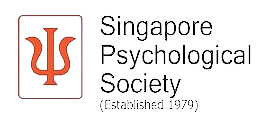Online Counselling
In today’s fast-paced world, online counselling, or teletherapy, has emerged as a comforting and convenient way to access mental health support. Many find it a very convenient and easy way to access therapy from their home or from work.
Most experienced professionals today are able to guide you through therapy using safe and secure online platforms. Research has shown that online therapy is just as effective as in person. And for some people, it increases the likelihood that they can access therapy due to work timetables or childcare issues. Or simply due to preference.
What Is Online Counselling?

Online counselling is a form of therapy that takes place over the internet. Sessions are conducted through video calls, phone calls, or even secure messaging platforms. Platforms are encrypted maintaining the same standards of care and confidentiality as traditional face-to-face therapy.
Yet this form of counselling can also offer the flexibility to fit seamlessly into your schedule. For many, online counselling removes barriers such as distance, mobility issues, or time constraints, making mental health care more accessible than ever.
Online counselling is suitable for anyone seeking support and all talk therapy models can be adapted to the online platform.
Whether you’re dealing with anxiety, depression, stress, relationship difficulties, or simply need someone to talk to, it offers a safe and supportive space to work through your concerns.
Who Is It For
Given its context as a medium, it’s particularly beneficial for individuals who:
- Prefer the convenience of attending therapy from home.
- Have busy schedules or limited access to transportation.
- Live in remote areas or regions with fewer mental health services.
Ultimately, online counselling is about meeting you where you are — literally and figuratively.
Research consistently shows that online counselling is as effective as in-person therapy for many mental health concerns. What matters most is the quality of the therapeutic relationship and the suitability of the approach for your needs.
How Can Us Help You?

Experienced Therapists
Our processes and quality assurance is led by Dr Emma Waddington, Senior Clinical Psychologist and Founder of Us Therapy, with over 20+ years of experience in helping individuals in Singapore.
Holistic & Personalised Approach
Our clinicians draw from various therapeutic models to create a holistic approach. At Us, we have seen hundreds of clients and we recognise that each individual is unique. Our approach is tailored to you but always includes customised treatment plans and integrative techniques.
Thorough Assessment
At Us, we pride ourselves on our comprehensive assessment processes. We will undergo a thorough assessment process with you in your first sessions before we come up with a plan for your therapy.
Our Therapists
At Us Therapy, we ensure that each session is tailored to create a meaningful and engaging experience, regardless of whether it’s conducted online or in person.
We are proud to have a team of compassionate and skilled clinicians who specialize in providing online therapy.
Each therapist brings their unique expertise to create a supportive and understanding environment. All of our team offer online counselling and we have two clinicians who offer exclusive online counselling.
Karen is an empathetic therapist with a background in anxiety management and relationship counselling. She excels at helping clients uncover their strengths and build resilience, making each session a step toward positive change.
Richard offers a warm and engaging approach to therapy. With years of experience in stress management and trauma recovery, he provides clients with practical tools and a safe space to explore their emotions.
What To Expect
Initial Consultation – A Space to Be Heard
The first session is all about getting to know you. It is a conversation—one where you can share what is been on your mind, what has been feeling difficult, and what you would like support with. Your therapist will ask questions about your background, experiences, and goals, but there is no pressure to answer any questions—just a safe space to begin.
Questionnaires & Onboarding Surveys – Understanding the Full Picture
To help tailor therapy to your needs, you may be asked to fill out some brief questionnaires before or after your first session. These can give insight into things like mood, stress levels, relationship patterns, or coping strategies. They are not tests—just tools to help your therapist understand how best to support you.
Individual Therapy Sessions – Your Journey at Your Own Pace
Each session is a step forward in your journey. Therapy is not just about talking—it is about discovering new ways to navigate life’s challenges, make sense of emotions, and feel like you are getting the most out of your life. Depending on your needs, sessions may focus on:
- Exploring patterns of thought and behavior
- Understanding past experiences and their impact on the present
- Developing practical coping tools
- Strengthening emotional resilience
Feedback Sessions – Reflecting and Adjusting
After the first few sessions (or after assessments), a feedback session provides space to reflect on how therapy is going. This is a chance to talk about what has been helpful, what you would like more of, and how therapy can continue to best serve you.
Intervention – The Heart of Therapy
Intervention is where meaningful change happens. Every therapy journey is unique, and the approach will be shaped around what works best for you. Some common approaches include:
🌱 Cognitive Behavioral Therapy (CBT) – Helping to identify and shift unhelpful thought patterns, reduce anxiety, and develop healthier ways to cope and new patterns of behaviour.
🧠 Schema Therapy – Deep, transformational work to uncover long-standing patterns that might be keeping you stuck, often rooted in early life experiences.
💙 Acceptance and Commitment Therapy (ACT) – Learning to handle difficult emotions with self-compassion and move towards what truly matters in life.
🌊 Eye Movement Desensitization and Reprocessing (EMDR) – A powerful approach for healing trauma and distressing memories, helping the brain reprocess them in a way that feels less overwhelming.
🧘 Mindfulness-Based Approaches – Building self-awareness, grounding techniques, and ways to manage stress and emotions with greater ease.
Therapy Approaches
The best type of therapy for men often depends on individual needs and preferences. Common approaches include:
Cognitive-Behavioral Therapy (CBT)
Focuses on understanding and changing unhelpful thought patterns and behaviors. Together with your therapist you’ll uncover your unhelpful thinking styles and find more workable and effective ways of being that are aligned with your values and the life you want to live.
Acceptance and Commitment Therapy (ACT)
Is a mindfulness-based approach that helps individuals embrace their thoughts and feelings rather than fight or avoid them. It encourages individuals to get more clarity on their personal values and helps individuals take committed action towards a meaningful life, even in the presence of discomfort or challenges. By fostering psychological flexibility, ACT empowers people to live with greater authenticity and resilience.
Psychodynamic Therapy
Delves into past experiences and unconscious processes to understand present challenges. Findings the links between early experiences and current challenges can help to make sense of unhelpful behavioural patterns.
Art Therapy
Allows for expression of grief through mediums like drawing, writing, or music, offering an alternative outlet for emotions.

A skilled therapist will work with you to identify the most effective approach for your unique situation.
Taking the step to seek therapy can feel daunting, but it’s an important investment in yourself. Our team is here to support you on this journey with empathy, professionalism, and care.
Fees
Individual Counselling Rates
Clinician type
Fees and Duration
Clinic Founder
$310
Principal Psychologist
$290
Senior Clinical Psychologist
$262
Educational Psychologist
$262
Clinical Psychologist
$236
Counsellor
$170
Expressive Arts Therapist
$170
Associate Psychologist
$130
Phone calls / Emails
Clinicians rate pro-rata (10 Mins)
Online counselling is a journey of connection and discovery. If you’re ready to begin, we invite you to reach out. Together, we can take the next step towards your mental health and wellbeing.
If you are interested in online counselling, you can book a consultation or reach out to us on WhatsApp, you can also call us +65 6980 8580. We look forward to welcoming you to our clinic.
Testimonials
Having undergone therapy with various centres, Us Therapy has been my favourite experience thus far.
I love the vibe of the place - homely, comfortable and doesn’t feel too clinical
The team is really very helpful, whether it be the receptionist (person responding to my whatsapp) or my therapist :")
We are very happy with Dounia. She is consistent and cares about my son. She takes time to treat him and listen to me when I have questions.
I like that the therapists can be flexible on the treatment approach and are open to involving parents in treatments like CBT.
Overall, I'm quite happy. I feel Ariel is supportive and patient with me, even when I keep going back to the same topics over and over.
Emma is a lifesaver. I feel blessed to have her as my therapist.
The entire booking process and experience here was smooth and hassle-free. Special thanks to the lady at the recep who patiently entertained my queries. And thank you Dr Marie-Claire for providing a safe environment to process my feelings.
Therapy with Maheen helped me a lot and I am very grateful for her support! Thank you!
Esther Seow is great: very good rapport
Frequently Asked Questions
Is online counselling as effective?
Yes, research shows that online counselling can be just as effective as in-person counselling for many mental health concerns, including anxiety, depression, and stress.
Online sessions offer the same therapeutic techniques, including Cognitive-Behavioral Therapy (CBT), and provide a convenient, accessible option for individuals who prefer remote support.
However, the effectiveness of online counselling depends on factors such as:
- The nature of the issue: Complex or severe conditions may benefit more from in-person sessions.
- The comfort level of the client: Some individuals may find it easier to open up online, while others prefer face-to-face interaction.
- The quality of the internet connection: Stable technology ensures seamless communication during sessions.
If you’re considering online counselling, a consultation with a licensed therapist can help determine the best approach for you.
FAQ
What type of therapy is best for men?
The best type of therapy for men depends on each individuals unique needs, challenges, and preferences. Cognitive Behavioral Therapy (CBT) is effective for addressing negative thought patterns, while Acceptance and Commitment Therapy (ACT) helps men align their actions with core values. Both these models tend to be short term and are effective with a number of different challenges like anxiety, mood or addictions. Men may also benefit from solution-focused approaches or trauma-focused therapies like EMDR, especially when dealing with specific events. The key is finding a therapist who fosters a safe and supportive environment for open conversation.
How much does therapy cost in Singapore?
In Singapore, therapy costs typically range between SGD 150 to 300 per session, depending on the therapist’s experience and the clinic’s location. Some centers, like here at Us, offer subsidized rates or sliding scales based on financial need, and group therapy options may also be more affordable. Employers, insurance plans, or Employee Assistance Programs (EAPs) might cover part of the cost, so it’s worth exploring these avenues as well.
Should a man get a male therapist?
Choosing a therapist is a personal decision, and gender can be an important factor for some men. While some might feel more comfortable discussing sensitive topics with another male therapist, others may value a different perspective or feel gender doesn’t matter at all. The key is selecting a therapist who understands and respects your experiences, regardless of gender. All our female clinicians are very confident and have years of experience working with men.
Is it OK for a man to go to therapy?
Absolutely, it’s not only OK but also courageous for a man to seek therapy. Society’s outdated notions of masculinity can make it hard for men to prioritize their mental health, but addressing emotions and challenges is a sign of strength, not weakness. Therapy offers a space for growth, self-discovery, and resilience, empowering men to lead healthier, more fulfilling lives.
If you are interested in therapy for men, you can book a consultation or reach out to us on WhatsApp, you can also call us +65 6980 8580. We look forward to welcoming you to our clinic.
FAQ
Each individual’s grieving process is unique, and it is very important to recognise that there’s no “right” or “wrong” way to grieve.
Grief counselling often uses a variety of techniques tailored to your needs, including:
- Narrative Therapy: Encourages you to share your story of loss, deepening your understanding of the meaning of your loss and helping you make sense of your emotions.
- Mindfulness and Relaxation Techniques: Provide tools to manage overwhelming feelings and ground yourself in the present moment.
- Cognitive Behavioral Therapy (CBT): Helps address unhelpful thought patterns and beliefs about the loss and promotes healthier coping strategies.
- Art and Creative Therapies: Allows for expression of grief through mediums like drawing, writing, or music, offering an alternative outlet for emotions.
Each technique aims to provide comfort, understanding, and practical tools to navigate your grief journey.
The best type of therapy for grief often depends on the individual. Many find Cognitive Behavioral Therapy (CBT) and Narrative Therapy helpful, while others benefit from more experiential approaches like art or mindfulness-based therapies.
A skilled therapist will work with you to determine the most suitable approach.








